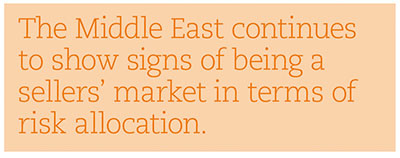
Both the Capital Markets Law (the CML), which came into force in the Kingdom of Saudi Arabia (the KSA) on February 21st, 2004 and the Market Conduct Regulations (the MCR) issued by the Board of the Capital Market Authority (the CMA) define and criminalise certain conduct as acts of market manipulation and insider trading. Listed companies or a potential issuer, their directors, senior employees and advisors as well as the selling shareholders should be aware of these provisions as they will wish to ensure comprehensive steps are taken to comply with these rules as violations can carry up to five years imprisonment (Article 57 of the CML).
Market manipulation
Article 49 item a. of the CML provides that any person shall be considered in violation of the CML if he intentionally carries out any act or engages in any action which creates a false or misleading impression as to the market, the prices or the value of any Security (as defined in the CML and its implementing regulations) for the purpose of creating that impression or thereby inducing third parties to buy, sell or subscribe for such Security or to refrain from doing so or to induce them to exercise, or refrain from exercising, any rights conferred by such Security. Article 49 item (c) of the CML describes certain acts and practices (which have been specified further by the CMA by way of the Articles 2 and 3 of MCR) which are considered types of manipulation that are outlawed such as undertaking transactions in Securities which do not involve a true transfer of ownership thereof.
Whereas Article 2 of the MCR deals with the ‘prohibition of manipulative and deceptive acts or practices’ in the KSA in more general terms, Article 3 of the MCR seeks to define such manipulative and deceptive acts and practices in more detail. According to the provisions of the latter Article, manipulative or deceptive acts or practices are (i) making a fictitious trade; or (ii) effecting a trade in a security that involves no change in its beneficial ownership. Besides, further specific acts are outlawed under item b. of Article 3 of the MCR provided that they are committed for the purpose of creating a false or misleading impression of trading activity in a security or interest in the purchase or sale of the security, or for the purpose of creating an artificial bid price or trade for a Security.
Insider trading
Similar to its market manipulation provisions, Article 50 of the CML sets forth provisions with regard to insider trading in more general terms which are again supplemented more specifically by the MCR (Articles 4 to 6). According to the provisions of item a. of Article 50 of the CML, any person who obtains, through family, business or contractual relationship, insider information is prohibited from directly or indirectly trading in the Security related to such information, or to communicate such information to another person with the expectation that such person will trade in such Security. Further, under item b. of Article 50 no person may purchase or sell a Security based on information obtained from an insider while knowing that such person, by disclosing such insider information related to the Security, has violated the provisions of item a. of the same Article. Article 50 item a. of the CML also provides a definition of the term ‘insider information’. Under the CML ‘insider information’ means information obtained by the insider and which is not available to the general public, has not been disclosed, and such information is of the type that a normal person would realise that in view of the nature and content of this information, its release and availability would have a material effect on the price or value of a security related to such information, and the insider knows that such information is not generally available and that, if it were available, it would have a material effect on the price or value of such security.
Liability for market manipulation and insider trading
Article 57 of the CML sets out the provisions for liability to compensate in damages to a person who purchases or sells a security whose price has been significantly adversely affected by violations of the prohibitions on market manipulation. The Committee for the Resolution of Securities Disputes may also, on the basis of a claim by the CMA, punish the individuals who violate such prohibitions with a prison term not exceeding five years.
|










































